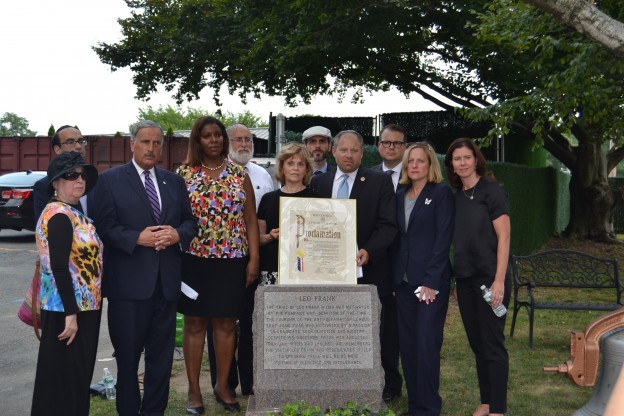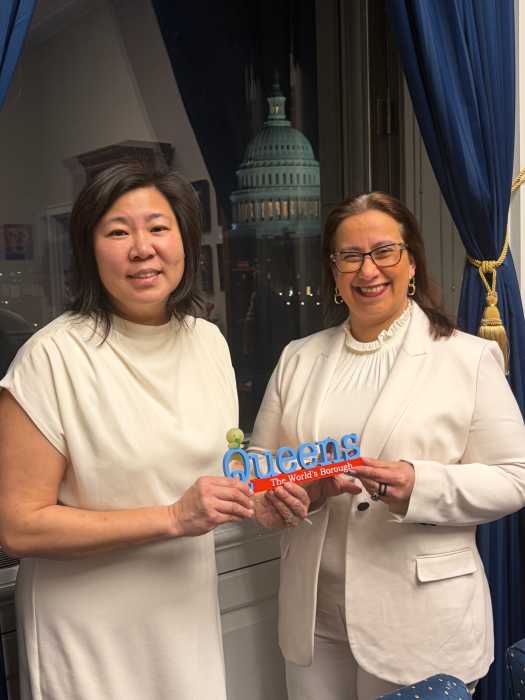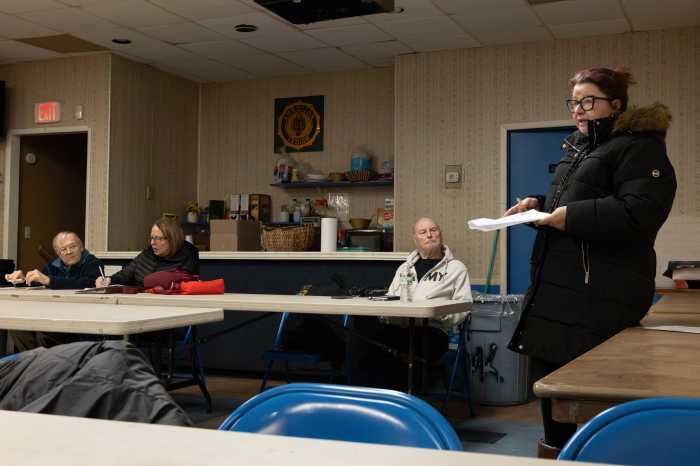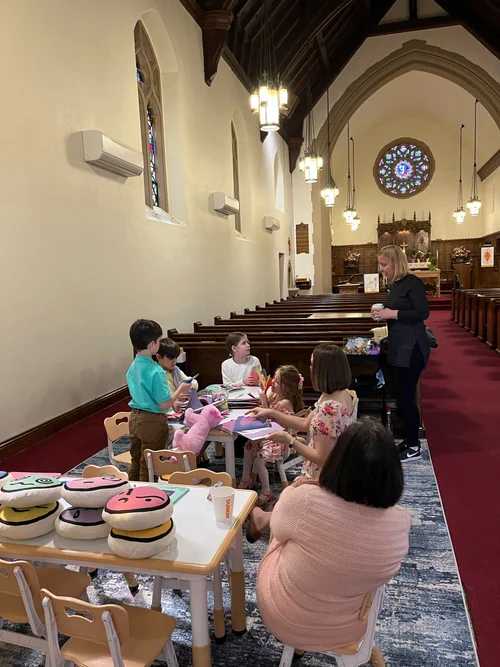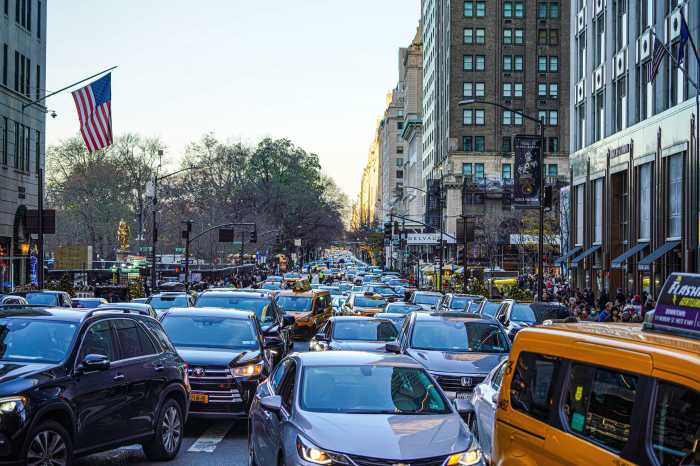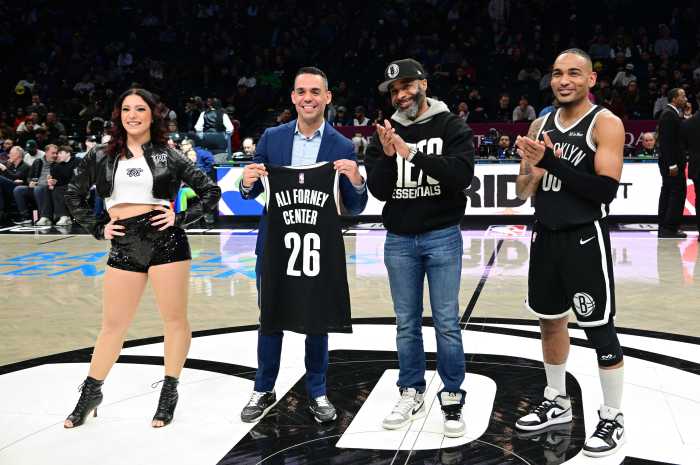Vowing never to forget, local elected officials and activists gathered on Monday at the Glendale grave of Leo Frank to mark the 100th anniversary since the Jewish factory superintendent wrongfully convicted of murder in Georgia was lynched by a hateful mob.
In 1913, a jury in Georgia found Frank guilty of murdering a 13-year-old girl who worked at his factory and sentenced him to death in a trial marked by anti-Semitism. Then-Georgia Gov. John Slaton commuted Frank’s sentence to life in prison, but in 1915, a group of armed men kidnapped Frank from the prison farm where he was serving time.
The group drove Frank to Marietta, Georgia, an Atlanta suburb, where on Aug. 17, 1915, he was brutally beaten and hanged from a tree — a victim of anti-Semitism and unfounded fear among residents. Frank’s body was interred at Mount Carmel Cemetery in Glendale, where Monday’s ceremony took place at graveside.
Among the participants were City Council members Rory I. Lancman and Elizabeth Crowley, Assemblyman David Weprin, Public Advocate Letitia James, Borough President Melinda Katz and members of the Anti-Defamation League, the Queens Jewish Community Council and the Kupferberg Holocaust Resource Center and Archives.
“Leo Frank wasn’t a senator or an advocate. He wasn’t an artist or an academic. He was just a Jew, and often that’s all the world needs to know,” Lancman said. “He must have felt terribly alone during his ordeal, especially when he was kidnapped and surrounded by a bloodthirsty mob. He is not alone today.”
Crowley echoed Lancman’s sentiments that more work is needed to bring an end to social injustices that still exist today.
“This still happens today, 100 years later. That’s why it’s so important we come together as a community to remember the anti-Semitic acts that killed Leo Frank and the racism that is alive today in America,” Crowley said. “Whether it’s the color of your skin or the religion you practice, here in New York and all across America and sadly, more often, all across the world people are killed for who they believe in or who they are, and that’s just wrong.”
Frank’s grandniece, Catherine Smithline, was in attendance to remember her granduncle and the terrible ordeal he was put through a century ago. Smithline was presented a proclamation from the Council of the City of New York on behalf of Frank that would remain at the cemetery, which memorializes some of the facts of Frank’s trial and murder.
“Leo Frank’s trial and murder was not just a horrific example of anti-Semitism, but also a damning condemnation of America’s justice system at the time,” Lancman added. “Let’s leave here remembering Leo Frank, but let’s not forget that we still have a lot of work to do to rid our legal system of injustice.”

